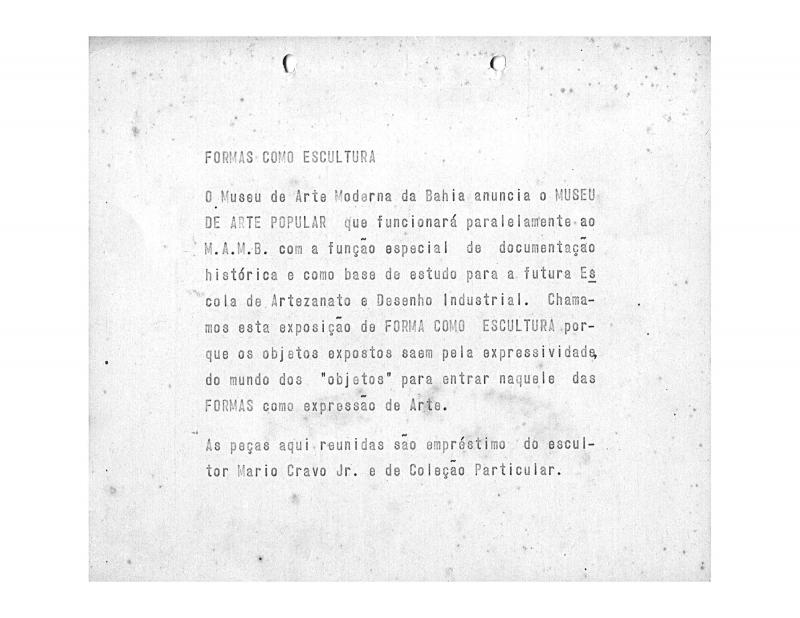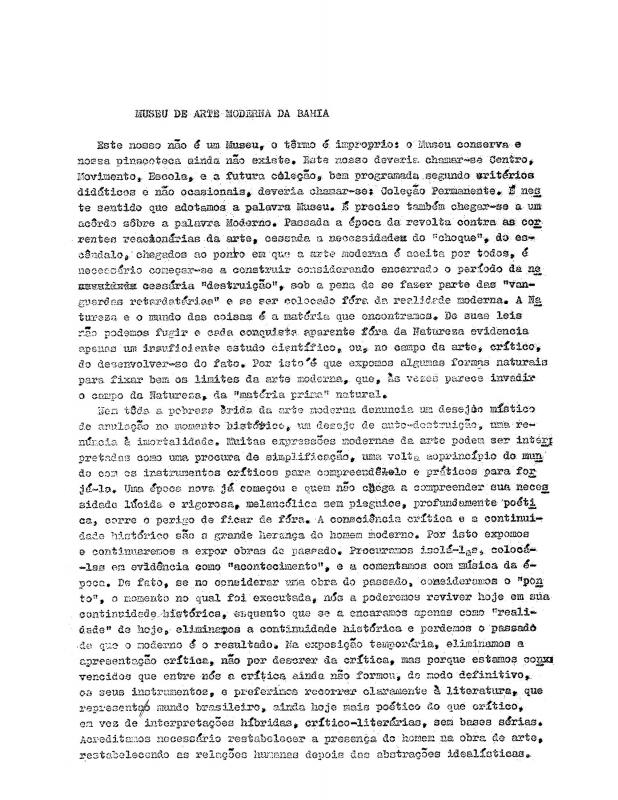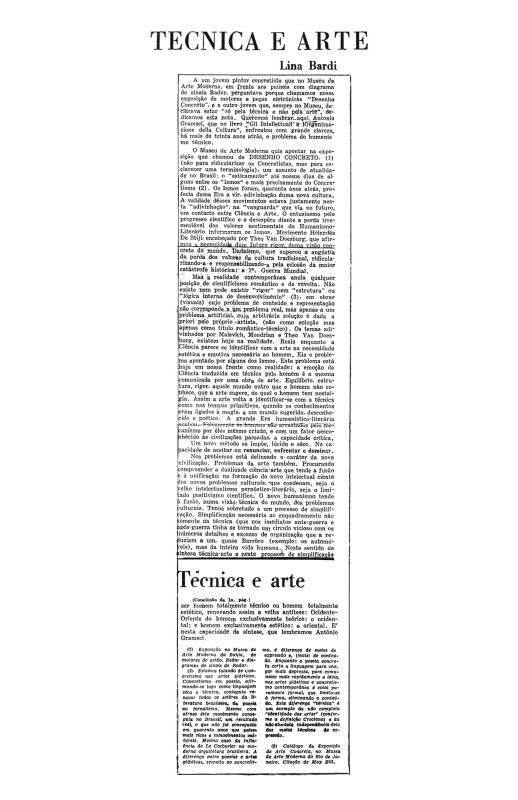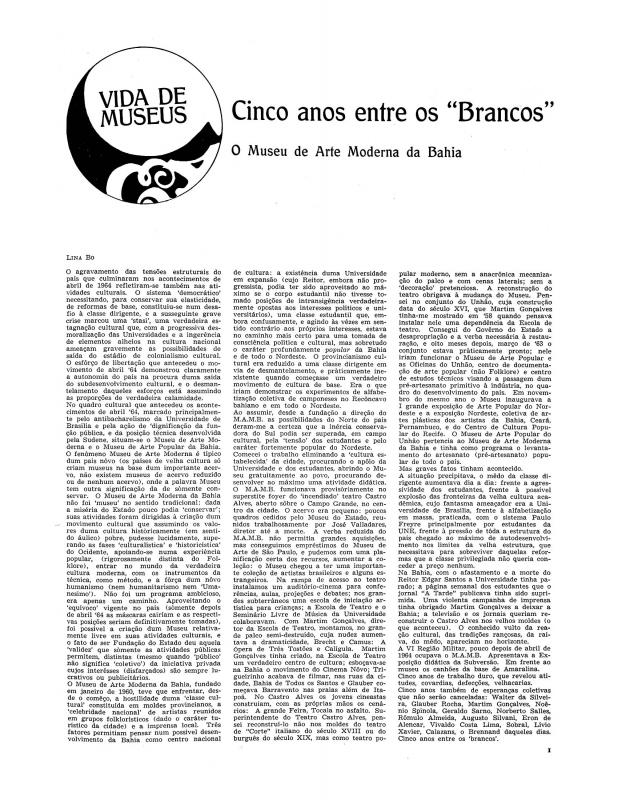The architect Lina Bo Bardi (née Achillina Bo, 1914–92) left Italy after the war and in the early 1950s settled in Brazil with her husband, the art dealerPietro Maria Bardi (1900–99) who, with the businessman Assis Chateaubriand, proposed creating an art museum, the MASP (Museu de Arte de São Paulo). Bo Bardi took charge of Habitat, the art magazine of MASP. The following year, in 1951, she and her husband started the industrial design course at the Institute of Contemporary Art, IAC (Instituto de Arte Contemporânea), where she worked as a teacher. She lived in Salvador (Bahia) from 1959 to 1964, where she was the director of MAMB. As had happened at the MASP in São Paulo—where she was in charge of program planning and teaching activities—her work at MAMB consisted of organizing art historical exhibitions and shows of contemporary and international artists representing various movements, and reevaluating the traditional culture of the Brazilian “northeast.” Bo Bardi organized regular classes on art, music, cinema, and theater and arranged for design and local handcraft workshops. She was a dynamic force in the art field in that part of the country, and helped local artists to make contact with well-known figures in the contemporary arts community. The Museu de Arte Popular opened in 1963, and housed work from different parts of the country. The military coup that overthrew the government the following year put an end to museum projects of that nature. On this subject, see articles by Bo Bardi, such as: “Formas como escultura” [doc. no. 1110858]; “Museu de Arte Moderna da Bahia” [doc. no. 1110860]; and “Técnica e arte” [doc. no. 1110861].
In 1958, Lina Bo Bardi was offered the position of director of a modern art museum in the capital city of the state of Bahia, a hard job that she held from 1960 until 1964. Based on her earlier experience at the MASP museum in São Paulo, she set out to transform MAMB into a space for exhibiting contemporary art and showcasing the traditional culture of the northeastern area of Brazil. The MAMB blended education with the production of art objects, as Bo Bardi implemented her idea of combining a modern art museum with an industrial design school. She proposed bringing the three institutions together at Solar do Unhão, the historical site where Portuguese colonizers received shipments of slaves brought from Africa. The fascist military coup (whose leaders remained in power for over two decades) prompted her dismissal on the grounds of “subversion.” As a result, her grand project collapsed and was never brought to fruition.
As complementary material, see another article by Lina Bo Bardi: “Cinco anos entre os ‘Brancos’: o Museu de Arte Moderna da Bahia” [doc. no. 1111192].




